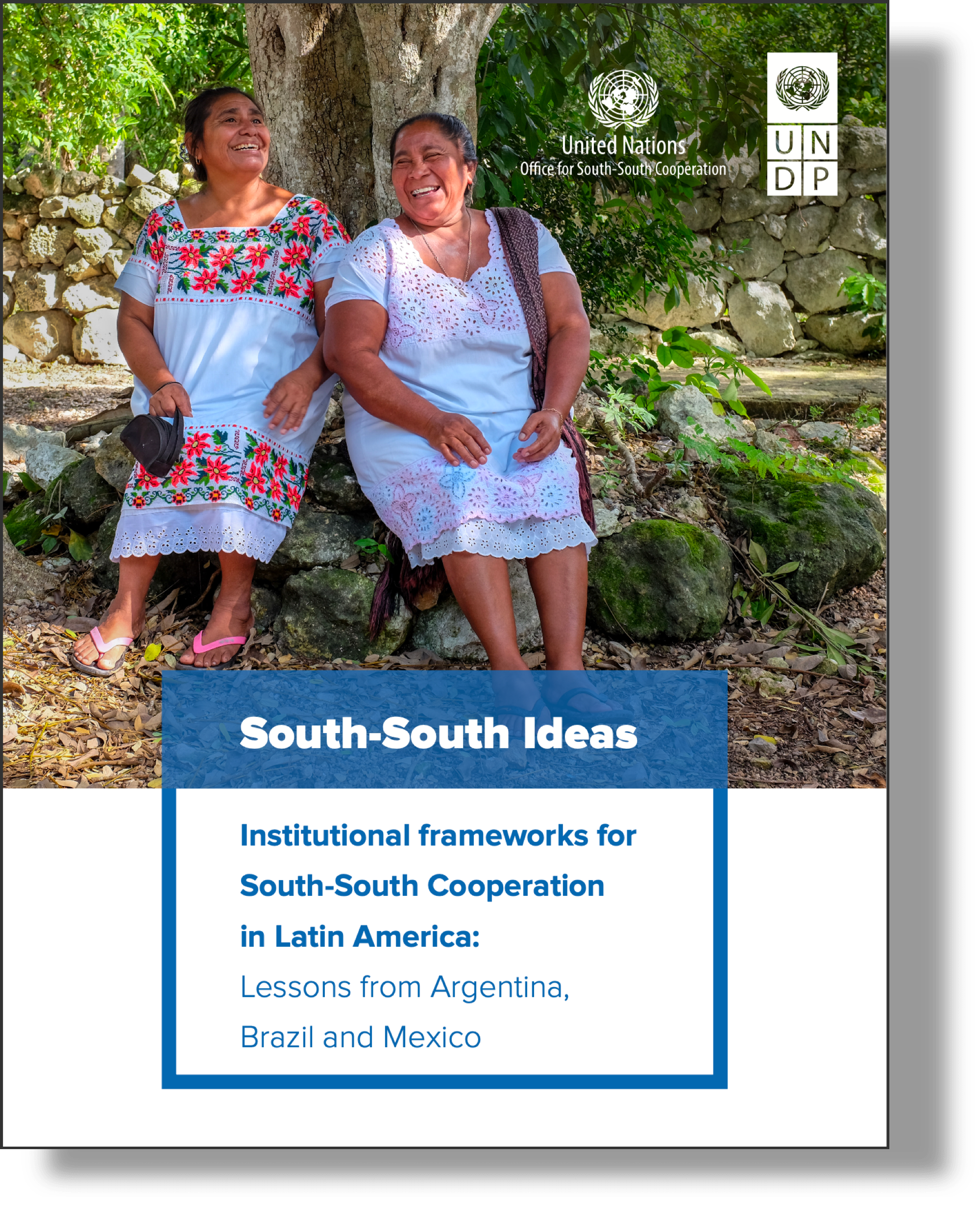The present study draws on the work of a team of eight researchers from Argentina, Brazil and Mexico, the three countries that are currently members of NeST LATAM: Alejandra Kern (Universidad Nacional de San Martín, Argentina), André de Mello e Souza (IPEA, Brazil), Aline Rizzo (IPEA, Brazil), Camila Santos (BPC, Brazil), Citlali Ayala (Instituto Mora, Mexico), Jorge A. Pérez-Pineda (Universidad Anáhuac Mexico), Lara Weisstaub (Universidad Nacional de San Martín, Argentina), Luara Lopes (ASUL, Brazil) and Paulo Esteves (BPC, Brazil).
NeST LATAM, the Latin American chapter of the Network of Southern Think Tanks, currently made up of representatives from Argentina, Brazil and Mexico, conducted the research to assess the lessons learned from national contexts regarding institutional frameworks for South-South Cooperation (SSC) in the region and devise possible ways forward, proposing a project combining desk review and outreach activities.
In the early stages of the implementation of the project, the team realized that COVID-19 was also a necessary topic, and thus it was added to the original proposal in the form of a survey designed to gather experiences from the first months of the pandemic in the region. The main objective of the present report is to understand whether and to what extent national SSC institutions can provide valuable lessons to foster stronger dialogue and coordination at the regional level.
In the three countries under analysis, institutional frameworks for SSC have been in existence for decades in different formats and before the outbreak of the pandemic, had been experiencing a recent spur. During our study’s specific time frame, 2010 to 2020, it may be said that some level of resistance has been on the rise in all three countries to the use of the term “South-South Cooperation” and a preference for the adoption of a looser conceptual framework while maintaining SSC distinguishing principles such as horizontality and mutual benefits. SSC is perceived as a narrative asset to be either adopted or dropped in official narratives as the situation warrants. Despite the general acceptance of SSC as a “broad framework of collaboration”, other SSC modalities have had fewer opportunities to engage in regional dialogue and exchanges, including humanitarian assistance and disaster risk reduction. Regarding the perceived impact of COVID-19 on SSC, there is a general expectation that SSC will help meet the key challenges that have arisen in the current situation: improving cross-border epidemiological surveillance, strengthening human resources training and fostering mutual learning, knowledge production and innovation for tests, vaccine and pharmaceuticals. In a wider perspective, SSC has been referred to as playing an important role in tackling the structural causes of the pandemic and advocating for different development models.
Recommendations
- There is an opportunity for regional organizations and/or for national SSC authorities to build trust and foster dialogue as to how to implement the principles of horizontality and mutual benefits into SSC experiences.
- Initiatives aiming to foster dialogue concerning SSC in the region should connect with the already established networks of technical cooperation as an entry-point to the understanding of and engagement with the full range of SSC modalities, and not necessarily as a stand-alone representative for SSC.
- National authorities in charge of SSC should invest in SSC M&E systems and evidence-based SSC documentation in order to build stronger and better-informed constituencies at the national and international levels.
- National authorities in charge of SSC and regional organizations aiming to engage in SSC dialogue must increase their efforts to include stakeholders responsible for humanitarian cooperation and for disaster risk reduction in SSC initiatives, by leveraging existing networks at the technical level to coordinate the establishment of easily triggered joint protocols to manage the risk of current and future outbreaks.
- National SSC authorities, regional and international organizations, think tanks and academia should create relationships of trust with national stakeholders and encourage SSC science and technology research, addressing the pandemic through a multidisciplinary approach and tackling the structural causes of the health crisis.

